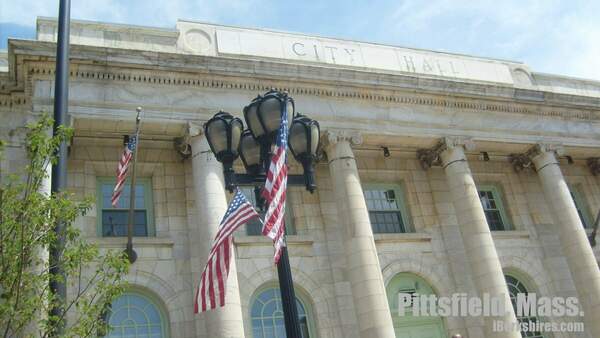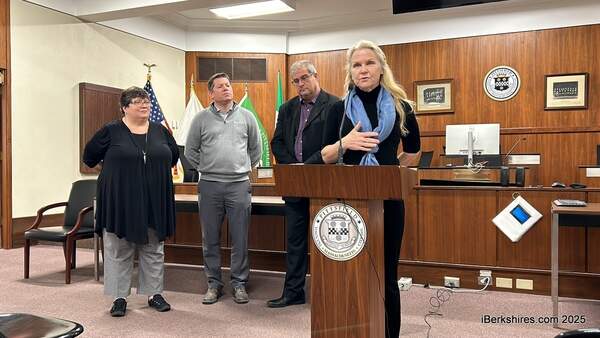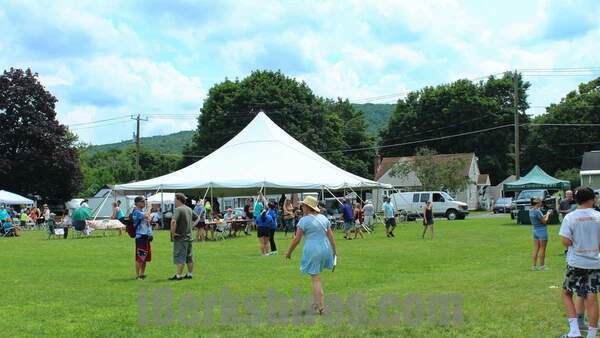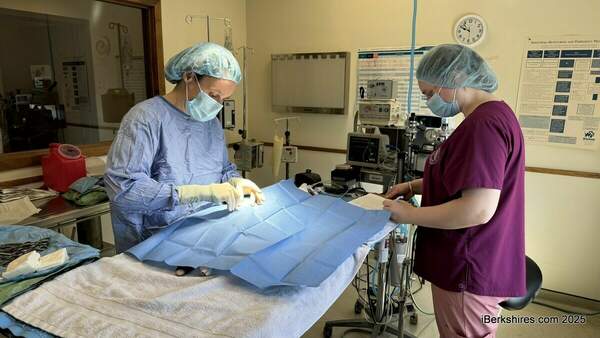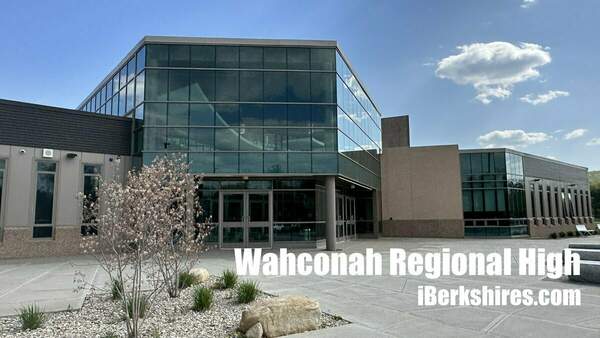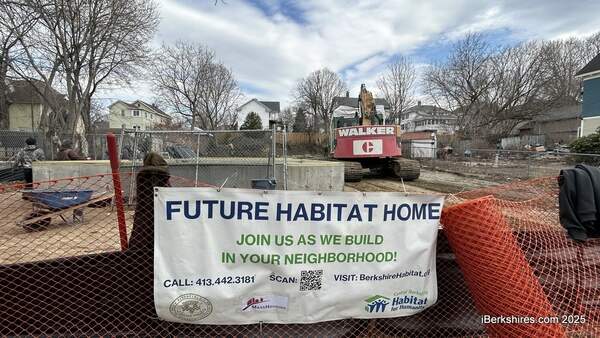OLLI Instructors Preview Winter Semester Classes of All Interests
PITTSFIELD, Mass. — The Osher Lifelong Learning Institute (OLLI) at Berkshire Community College offers over 20 classes in science, history, social studies, literature, and the arts.
The membership organization held a virtual open house for its 2023 winter semester last week, with fifteen instructors giving an overview of their courses to potential students.
"We're here to be a community of people committed to learning and having fun, and we are over 1,450 members. We are the largest Lifelong Learning Program in Massachusetts," Executive Director Carol Allman-Morton explained.
"We offer five semesters of peer-led courses each year taught by volunteer instructors and also offer regular events, speakers, and programs to connect the members of our Olli community with each other and with the world."
The courses run from Jan. 17 to March 6. They are a mixture of remote and in-person classes at BCC.
OLLI is targeted at learners ages 50 plus but anyone can join. Annual membership is $60 and $30 for the summer.
Participants will hear from historical societies of surrounding towns in John Dickson's six-session course "Conversations with Berkshire Historical Societies."
This is the second round of the class with the first occurring last year covering the Stockbridge Munsee Mohicans, Sheffield, North Adams, West Stockbridge, Lenox, and Pittsfield. Early on, Dickson began to receive emails requesting the coverage of other communities and it became clear that he would have to do a second round of the class.
"One thing I've noticed last year and this year in these conversations with local historical societies: we are really blessed, as many areas are not just Berkshire County, but we're really blessed with people who have taken this on as a hobby of learning about their own town," Dickson said.
This semester will cover Monterey, Tyringham, Sandisfield, Richmond, Adams, Lee, and Stockbridge. It will be conducted over Zoom aside from one class that is planned to be held at the Adams Public Library in the Grand Army of the Republic Memorial Hall.
"It is just a spectacular historic building and room, and I'm told that the room is the exact same way with the same chairs that it was when it was it was built," he added about the hall.
"So I thought if we're doing a class on local history, we've got to do it from here and let people see this wonderful view."
Dickson disclosed that the Sandisfield conversation will focus on a little-known Jewish colony in the town that began in the early 1900s.
"We're going to look at the early settlement at first the original inhabitants, spend a lot of time on these towns in their early days pre nationhood and then move into these towns that were many of them instrumental in the Revolutionary War and the French and Indian War, as well," he explained.
"We're going to talk about industry in these towns and moving pretty much into the 20th century, but not very far into the 20th century."
The class will be held on Thursdays from 9:30 a.m. to 11 a.m.
Michael Feldberg will tackle the role of organized religion in our nation in his course titled "Religious Freedom in America: Of, For, or From?"
"What I'm interested in and what I hope you're interested in is understanding the role that organized religion is playing in our social life, in our politics, in our legal system, in our culture, and how in some ways religion has gone from being an individual right to a weaponized political force in American society," he explained.
"We all know that we have a right to religious freedom. It's in the First Amendment, the first words of the First Amendment, but very few of us see that right in exactly the same way."
Feldberg said that for some, this means freedom to worship and believe as they wish, for some, it comes with the expectation that a person's values will be reflected in public policy and law, and for others, it is freedom from religion.
He pointed out that these controversies are historically based on many examples in the nation's past.
"My hope is that we'll be able to see this history in a way that enlightens our understanding of the cultural conflicts we're having today in the United States," he said.
The five-session course will be offered in person on Tuesdays from 2 p.m. to 3:30 p.m.
Jeannie Woods will be offering part two of her class "American Dreams: Plays About The American Immigrant Experience" virtually on Tuesdays from 4 p.m. to 5:30 p.m. over six sessions.
Students will examine three contemporary plays that dramatize the tension between assimilating to American culture and preserving one’s native culture, the daily battle against discrimination, and the courage it takes to carve out a new life and identity in a strange and often hostile land.
Woods explained that the students requested a second installation and that Dr. Katherine Kidd, who is teaching "Imperial Reckoning: Rethinking Britain's Imperial Legacy" this semester, will be joining as a Zoom manager to help facilitate discussions.
"The previous American Dreams class began with an examination of how transnational immigration has been represented in American dramatic literature. In that course, we read five plays from the early 19th century up to the 1980s which related to immigrants from Ireland, Italy, Poland, China, and Puerto Rico," Woods noted.
"Part two of American Dreams will examine three contemporary plays. Note that we're covering fewer plays so we can have a more in-depth discussion of each script. Like the previous plays, these stories dramatize the tension between assimilating to American culture and preserving one's native culture, the daily battle against discrimination, and the courage it takes to carve out a new life and identity in a strange often hostile land."
"Moving Out" by Lisa Loomer, "Disgraced" by Ayad Akhtar, and "Aliens with Extraordinary Skills" by Saviana Stanescu will be covered this semester.
For those interested in the sciences, Bryan McKersie will be teaching "CRISPR and the Gene Editing Revolution" on Mondays from 4 p.m. to 5:30 p.m. and Peter Bluhm and Tony Segal will offer "Science Conversations" on Fridays over Zoom from 11:30 a.m. to 1 p.m. to discuss news in the Tuesday "Science Times section of the New York Times and other publications.
"I started my career in biotechnology research, first as a professor at the University in Canada and then leading international research projects for a company and North Carolina," McKersie said.
"But since I retired, which was 10 years ago, there's been a revolution and a paradigm shift in biology because gene-editing technology now allows us to change the genes which exist in any organism, including ourselves."
He explained that this technology has been having a profound effect on medicine, agriculture, and environmental protection.
The first few classes will go over basic principles in genetics (that is intended for non-biologists) and then it will discuss the applications of gene editing and how it impacts people's lives.
The course will go into how gene editing is used to treat debilitating diseases and will dive deeper into the ethical and moral arguments for and against it.
"Not only can this technology be used to treat genetic diseases that can be used to cure genetic diseases by changing the genetics of our children and our grandchildren forever. We can make these changes to eradicate these diseases to make stronger athletes, more aggressive soldiers, to give our children superpowers against various sub-viral diseases. But the question is should we?" McKersie said.
"Are we on the verge of a new eugenics program which identifies desirable and undesirable people? Will we be creating Huxley's Brave New World? So the question is how do we achieve the benefits from this technology and avoid its misuse and most importantly, who decides?"
Arts appreciators can take "Creative Card Making 101" with Linda Goff on Thursdays from 1:30 to 3 p.m. over Zoom or "Treasures of Chamber Music - Form, Function, and Secret Delights" with Harriet Wetstone on Tuesdays from 11:30 a.m. to 1 p.m. in person.
"Chamber music is so different from our orchestral music. Orchestral music involves large ensembles with many players, so many different instruments, all following the leadership of one conductor," Wetstone explained.
"Chamber music is composed for a small group of musicians, each having their own voice planning an equally vital role in the success of what is best described as a musical conversation. Chamber music is so much smaller in scope than orchestral music, nonetheless, it's more difficult to compose, more demanding to perform."
For the full winter semester course list and more information on Olli, visit www.berkshireolli.org.
Tags: BCC,

